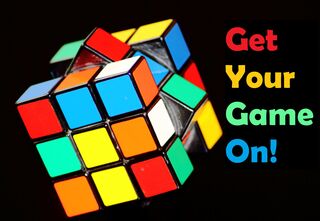Play
Playfulness During a Pandemic
Is it time to let your inner child out to play?
Posted July 26, 2020 Reviewed by Kaja Perina

The coronavirus pandemic is an unprecedented and historical public health event. However, it's not the only epidemic we face. For example, an epidemic of suffering: families are hurting. An epidemic of loneliness is experienced by many. Even boredom can make us do strange things.
With all the bad news, it is easy to fall into cynicism and malaise. It’s difficult to keep it positive. Previously, I’ve mentioned a mental App called “PAS” (Positive Asset Search); a way to cope by counting our blessings when we’re feeling down. Another possible cure for the blues is something we all (used to) know how to do. PLAY! As kids we used to play, and your inner child still knows this important skill.
How can adults and kids play safely during a stay-home pandemic? Many have rediscovered the benefits of quiet, unplugged pursuits. But since this blog is about technology and psychology, let’s dive into technology and gaming, and see where it takes us.
Playing on your own - There are plenty of solo activities that can bring out your playful side: From a fidget spinner, to solving that classic Rubik’s cube, or playing yourself silly with Candy Crush™ or Minecraft™, are all fun ways to take a break. For a nostalgic kick, try Solitaire, jigsaw, or crossword puzzles. Plenty of websites offer digital games for taking a playful journey on your own
By working puzzles, you are exercising your brain. Play can launch us into the so-called “flow” state of mind, where we are so engaged and absorbed, that time quickly passes by unnoticed. Puzzle sites, such as “Magic Puzzles” are great for playing alone or sharing online.
Playing with Others - Cooperative play is participating in social gaming with others, for playful interactions and friendly competitions. As adults we love RPG’s, taking on fantasy roles as we compete with others online. Likewise, competitive games are magnetic for kids. Parents know that when children are properly monitored, online games provide kids with virtual-social experiences even during a quarantine.
Amid all the technology, we might consider mixing things up by going “old school.” Break out a board game or a deck of cards. From charades to checkers and chess, these classic competitions give your problem-solving skills a workout! Here is an A to Z listing of games, and how to play them.
Play is the language of children - Parents home-schooling their kids must find playful ways to engage children in learning. From brain teasers to memory games, there is a wide world of online activities that immerse kids in active learning. Classic games are also available online, such as Mah-Jongg, backgammon, or your favorite alien invader shoot out. Playtime is the gift that allows adults to engage children in fun, learning activities, while rewarding your inner child as well!
Play Therapy? - A broader definition of “play” for adults might not be a “game,” but instead is a creative collaboration. From music, to art, to group videos, there are many ways to get your creative juices flowing. The goal is to immerse yourself in something creative and fun. Hopefully, you’ll experience that “flow state” where time passes quickly since as you are immersed in your “play zone.” This gives a healthy dopamine rush!

Social distancing may discourage games of Tag or Twister™ these days, but a friendly online competition or video game never goes out of style. One study from Germany found that video game play was correlated with increased grey matter! (1) Playing video-games, much like playing a musical instrument or doing sports, exercises important parts of our brains. When we play, enjoy, and compete, we engage complex problem solving, learning, and fine motor skills. Playing activates areas involved with memory, spatial orientation, information processing, and emotional regulation. Most of all, the act of playing a game is fun: We enjoy it, and it helps us feel better.
One caveat: There is a high level of stimulation, violence, and adrenaline coming from some games – so moderation and parental oversight are key. A play break can be healthy, but binging and gaming addictions are not. Take control of your recreation; Treat play as good medicine. Just don’t overdo it.
Self-care can sometimes mean indulging your inner child in playfulness. Take a break to play. It will likely have a positive effect on your mind, mood, and body.
Have fun!
References
(1) West GL, Zendel BR, Konishi K, Benady-Chorney J, Bohbot VD, Peretz I, et al. (2017) Playing Super Mario 64 increases hippocampal grey matter in older adults. PLoS ONE 12(12): e0187779. https://doi.org/10.1371/journal.pone.0187779


